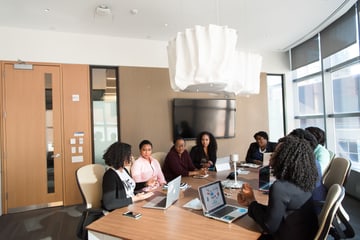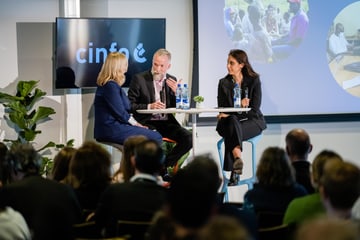Localisation - can you still contribute as a professional from the Global North?
In international development, the process of handing over more decision-making power and resources to local actors is called localisation. At Forum cinfo 22, Shazia Islamshah and Pascal Bijleveld, as humanitarian and development professionals, shared their personal experiences and opinions on this topic.

Localisation in a nutshell
As a multifaceted concept, localisation demands an awareness of the underlying narratives that influence the understanding, such as colonialism or globalisation, as highlighted by Shazia. Broadly defined, localisation refers to the process of shifting power from the Global North to the Global South. However, the Global North/Global South divide is too simplistic. Pascal commented that the world and the professional environment of international development are nuanced. There are many different circumstances in the Global South, just as there are differences in the Global North. Humanitarian and development professionals, therefore, work in very different contexts throughout their careers.
Considering the diverse contexts, the discussion has evolved over the last decades. Shazia reflected that significant progress has been made since then, with bias, discomfort and privilege are now openly discussed. Previously, hidden biases between local NGOs and international organisations went unaddressed. Pascal believes that the SDGs have contributed to this openness, bringing the underlying issues to light and making them explicit by pushing for localisation and sustainability.
What does localisation mean in practice?
Is localisation achieved by simply devolving power to local actors? Shazia challenged this assumption by showing that the international development system needs to update its narratives and question its assumptions. For example, the Global South is often thought of as this less developed entity. In fact, it is very diverse and includes elements of the Global North. There are also assumptions about the credibility and capacity of our working partners in the Global South. How are their contributions valued, and are their ideas, methods and innovations recognised? Another assumption is that the capacity of local organisations is lacking or that the kind of capacity the Global North can add is what the Global South needs. Pascal added that programme funders need the patience to capture and implement local ideas, as well as trust and a willingness to let go and accept that how we see things is not always how others see them.
The international development system needs to update its narratives and question its assumptions.

How can I contribute as a professional from the Global North?
If the general trend in international development is about shifting power to local actors, what does this mean for professionals from the Global North? It does not mean that there are no roles left to play for professionals from the Global North, as Shazia explains: “I think there’s enough work for everyone. It’s not about removing stakeholders from the process, but rather the way we work together and our approach towards collaboration.” As Pascal emphasises, there is value in exchanging expertise and knowledge from different parts of the world.
Candidates should focus on building competencies and expertise and acquiring the right attitude and behaviour.
Today, the workforce in international cooperation is much more global than it used to be, leading to higher competition among candidates. Therefore, candidates should focus on building competencies and expertise and acquiring the right attitude and behaviour. When working in a global context, it is essential to have the capacity and skills for self-awareness, self-reflection and openness to better understand specific cultural and societal perspectives.



